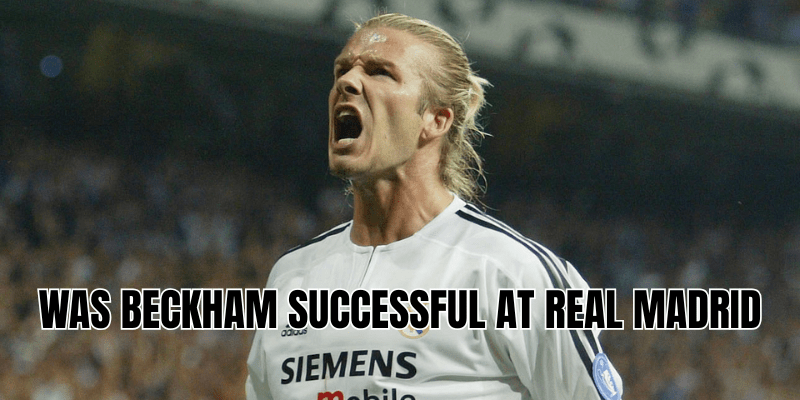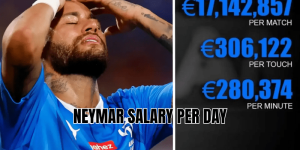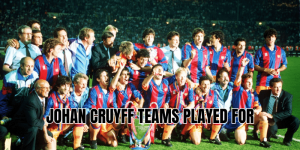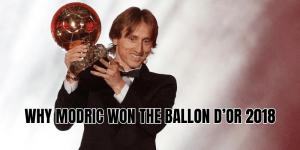Would Beckham be successful at Real Madrid, or would he merely add glamour to a team already overflowing with stars? The answer is not black and white. In this article, DaoKick will take you through the highs and lows of Beckham’s four seasons at Real, weighing trophies, statistics, role, legacy—and ultimately answering whether the move paid off on the pitch.
Beckham Joins the Galácticos: Expectations and Context
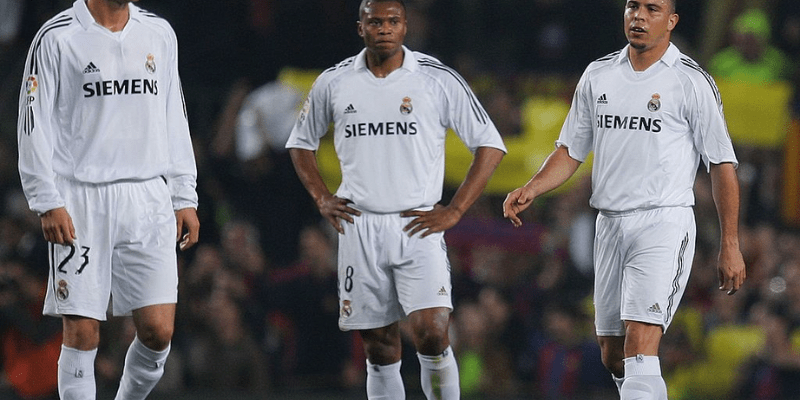
When Real Madrid signed Beckham, it was more than just a football transfer—it was a statement. The Galáctico policy, spearheaded by then president Florentino Pérez, aimed to assemble world-class names: Zidane, Figo, Ronaldo already graced the squad, and Beckham added star power, global appeal, and marketing reach.
Yet with that came lofty expectations. Could the Englishman adapt to Spanish football? Could he carve out a role amid established stars? His arrival coincided with internal questions about squad balance, especially since Real had just sold Claude Makélélé—a defensive midfield lynchpin many felt they needed more than another glamorous signing.
Beckham stepped into a squad brimming with creativity but lacking structural solidity. The pressure was immense: to perform, to contribute, and to justify the investment—not just in prestige but in results.
On-Field Contributions: Statistics, Roles, and Key Matches
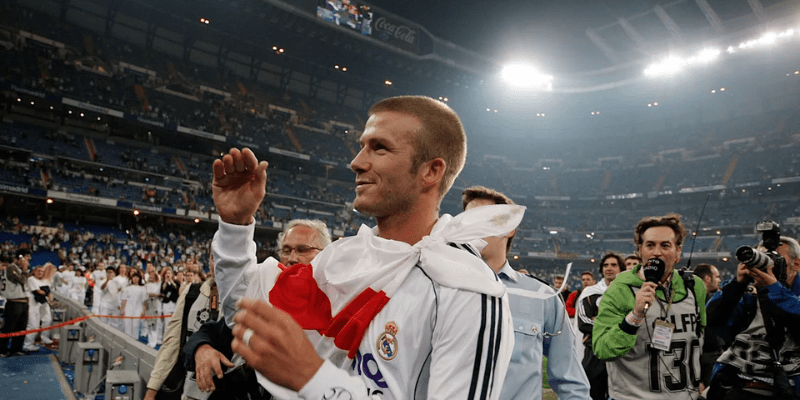
Appearances and Goals
In La Liga, Beckham made 116 appearances and scored 13 goals across his four seasons in Spain. That yields a goals-per-game ratio of roughly 0.11, modest for an attacking-minded player. Meanwhile, across all competitions, sources note he scored about 20 goals in around 155 appearances for Real.
Beckham’s goal numbers were not spectacular. What he provided more often was stability in possession, precise passing, and exceptional set-piece ability—traits that often don’t jump out in basic stat summaries but were valued in the locker room.
Positional Shift and Role Evolution
One of the most significant adaptations Beckham made was changing his role. At Manchester United, he was predominantly a right midfielder or winger, known for whipping in crosses. But at Real, the presence of Figo—and tactical needs—pushed him toward a more central midfield role. e Real Champs])
In central areas, his attacking output naturally dipped, but his passing range, work rate, and intelligence sustained his value. Though he lost some of the attacking spark he had in England, he compensated with discipline and tactical awareness.
Defining Matches and Moments
Though Beckham never dominated headlines in Spain the way he did in England, he had highlights:
- In his debut season, he helped Madrid top La Liga at Christmas, scoring several free-kicks.
- He scored a memorable free-kick in the 2004 Copa del Rey final, giving Real an early lead.
- On 17 June 2007, in his final match for Real, he featured in a 3–1 win over Mallorca that clinched the La Liga title that season—the only league crown Madrid secured during his tenure.
These moments show he had influence, even if consistency on the highest level was elusive.
Silverware and Team Success
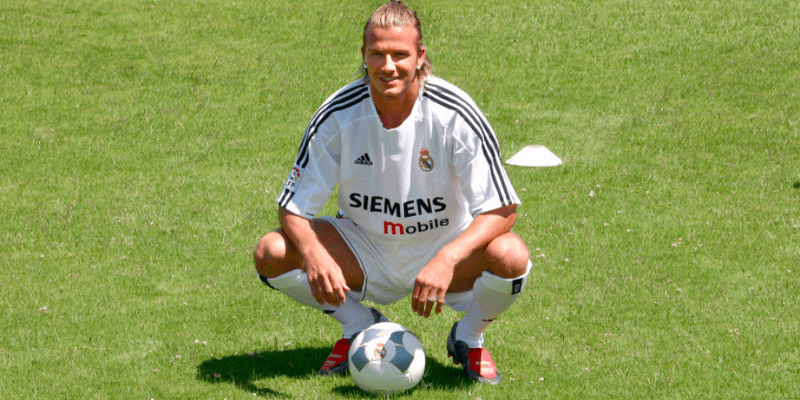
When assessing success, trophies matter. Beckham’s Real Madrid career yielded:
- 1 La Liga title (2006–07)
- 1 Supercopa de España (Spanish Super Cup)
- No Champions League titles during his four seasons
In contrast, Madrid before and after his arrival frequently contended for both domestic and European honors. Some critics argue that to truly be “successful at Real Madrid,” a player of Beckham’s ties and cost should have delivered more silverware.
While one La Liga title is nothing to dismiss, relative to the expectations and historical standards at the club, the haul feels modest.
Strengths vs Limitations: What Worked, What Didn’t
Strengths
- Set-piece mastery – Beckham’s dead-ball deliveries remained a threat in Spain, offering a weapon Madrid often used.
- Consistency & professionalism – He rarely disappeared. Tactical flexibility – Adapting from right-wing to central roles showed maturity and willingness to serve team needs.
- Global profile boost – Off the pitch, Beckham increased the club’s marketing footprint, enhancing brand and jersey sales (though this is a secondary metric in pure football evaluation).
Limitations
- Lack of breakthrough in big games – He rarely produced match-winning performances in the biggest European matches.
- Positional compromise – Forced into central midfield, he lost some of the attacking potency he once had.
- Squad imbalance – The decision to sign him (and sell Makélélé) has been retrospectively questioned by Madrid legends who believed squad balance was sacrificed for star appeal.
- Comparative expectation – His high price tag and global reputation meant fans expected more than what his “steady contributor” role delivered.
Perception and Legacy: How Fans and Historians See It
At Madrid, Beckham was well-liked personally. He won over fans with his work ethic, professionalism, and the kind of celebrity appeal unique to him. But his on-field legacy is more controversial.
Some see him as a Galáctico who underachieved—part of the “too many stars, not enough balance” era. Others view him as underrated: a player who gave stability, leadership, and technical quality, even if he was never the centerpiece.
In the pantheon of Real legends, Beckham is not the first name mentioned. Yet he remains a recognized chapter in the club’s Galáctico saga—a symbol of its early 2000s ambitions.
So, Was Beckham Successful At Real Madrid?
To answer the core question: yes—and no.
Yes, because Beckham delivered professionalism, consistent performances, a league title, and meaningful moments like his Copa del Rey free-kick and final-season contribution. He adapted roles, maintained high standards, and enhanced the club’s global stature.
No, because as a marquee signing in the Galáctico era, the on-field returns didn’t fully match the investment. Champions League glory eluded him; his individual numbers were modest; and his role was often more supportive than transformative.
In balance, Beckham was a solid success—but not a transcendent one by Real Madrid’s lofty benchmarks.
Conclusion
Yes, David Beckham was successful at Real Madrid, but success came with caveats. He earned a La Liga title, contributed key performances, and embodied professionalism—even if he didn’t dominate in the way some hoped. His legacy is nuanced: not a legend in stats alone, but an important figure in Madrid’s modern football story.
If you enjoyed this deep dive into Beckham’s Real Madrid years, keep following DaoKick for similar analysis, player comparisons, club histories, and transfer breakdowns.
